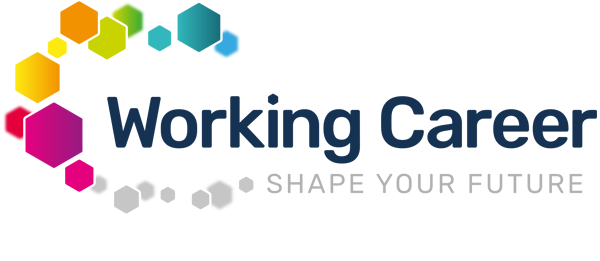The Connection Between Work and Well-Being: Insights for Career Changers
Work plays a central role in our lives, influencing our financial stability and mental, physical, and emotional well-being. As we spend a significant portion of our time at work, it’s no surprise that the type of work we do and the environment we do it in can profoundly affect our overall well-being. For those considering a career change or exploring new paths, understanding the connection between work and well-being can help guide decisions that lead to a more fulfilling professional life.
The Impact of Work on Mental Health
Work can be both a source of mental wellness and a trigger for mental health challenges. Meaningful work provides a sense of purpose and achievement, contributing to self-worth and motivation. Additionally, workplaces with strong social connections and supportive leadership foster emotional resilience.
However, the flip side is also true. Toxic work environments, high-stress levels, and excessive workloads can lead to anxiety, depression, and burnout. For individuals contemplating a career change, assessing how their current role impacts their mental health can be crucial to making positive changes.
Physical Health and the Workplace
The physical demands of a job and workplace ergonomics significantly affect our well-being. Jobs encouraging movement or physical activity can help maintain fitness, while sedentary roles may require proactive efforts to avoid associated health risks. Chronic stress from work also manifests physically, leading to symptoms such as headaches, disrupted sleep, and cardiovascular issues.
If your current role negatively affects your physical health, it may be time to consider changing careers to something more aligned with your well-being goals. Whether it’s a role that encourages movement, offers better health benefits, or reduces stress, prioritising physical health is essential.
The Role of Work-Life Balance
Achieving a balance between work and personal life is a cornerstone of well-being at work. Flexible roles, remote opportunities, and companies that respect personal time allow individuals to nurture their hobbies, relationships, and self-care routines. On the other hand, a lack of balance can lead to exhaustion and diminished life satisfaction.
Identifying industries and organizations that value work-life balance can be transformative for career changers. Careers in fields that align with personal values, such as renewable energy, environmental conservation, or creative industries, can provide opportunities to balance passion and practicality.
The Importance of Economic Stability
Financial security is a key contributor to well-being. A stable income provides access to basic needs like housing, healthcare, and education. Unemployment, low wages, or precarious work, however, can significantly harm mental health and overall quality of life.
When considering a career change, it is essential to evaluate how the new role aligns with your financial needs and long-term goals. Balancing passion with practicality ensures that the career shift supports personal fulfilment and economic stability.
Workplace Environment and Job Design
Jobs that offer autonomy, opportunities for growth, and recognition foster a sense of purpose and engagement. Supportive leadership and positive workplace cultures further enhance well-being at work. Conversely, roles with unclear expectations, limited growth opportunities, and unsupportive environments can erode motivation and satisfaction.
When changing careers, consider roles and industries that prioritize employee development and offer clear pathways for advancement. Seeking out organizations with a reputation for positive workplace culture can significantly improve long-term job satisfaction.
Career Change as a Path to Improved Well-Being
For many, changing careers is an opportunity to align professional life with personal values, interests, and well-being goals. Whether it’s moving into a field that sparks passion or seeking better work-life balance, career transitions often open doors to enhanced satisfaction and fulfilment.
Key questions to ask yourself when contemplating a career change include:
Does this new role align with my values and interests?
Will it provide the financial stability I need?
How will this change impact my mental and physical health?
Does the organization or industry value work-life balance?
Strategies for Enhancing Well-Being at Work
If you’re not ready for a career change but want to improve your well-being at work, consider the following strategies:
Develop Resilience: Practice mindfulness set boundaries, and build strong social connections.
Seek Meaningful Work: Explore ways to find purpose in your current role.
Prioritize Health: Advocate for ergonomic improvements and participate in wellness programs.
Engage in Continuous Learning: Invest in skill development to increase engagement and growth opportunities.
Conclusion
Work and well-being are deeply interconnected; understanding this relationship is crucial for making informed career decisions. Whether you’re contemplating a major career change or looking to improve your current situation, prioritizing your mental, physical, and emotional health is essential. By aligning your career with your values, strengths, and well-being goals, you can create a fulfilling and sustainable professional life.
For those on the journey of changing careers, remember that your well-being at work should always be at the forefront of your decisions. After all, a career that supports your overall health and happiness is not just a job – it’s a pathway to a thriving life.
I am Diana Dawson, Founder of Working Career. As a Professional Career Coach, Career Psychologist, Career Counsellor, Career Consultant, Executive Coach, and Wellbeing at Work Coach, I help organisations and individuals manage their careers.
I am an Accredited Master Coach with the Association for Coaching, a Coaching Psychologist and a Cognitive Behavioural Hypnotherapist with over 20 years of experience in the field.
I work with professionals from different sectors and backgrounds to cope and flourish at work.
I can provide one-to-one career coaching via Zoom worldwide.




